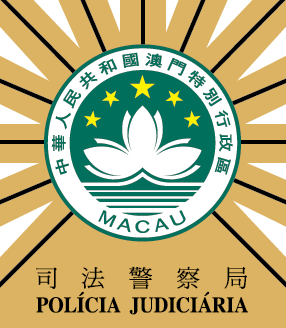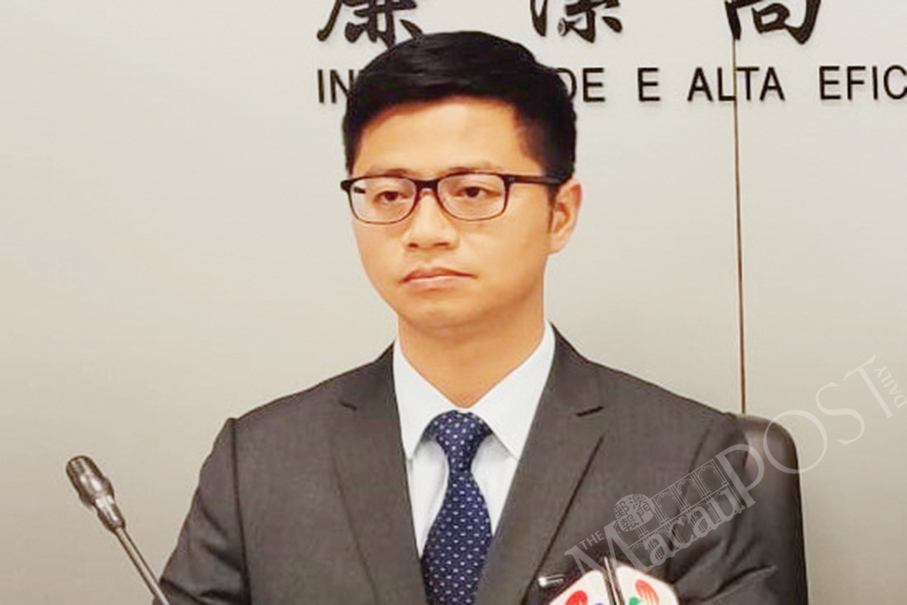Directly-elected lawmaker-cum-unionist Ella Lei Cheng I, who chairs the Legislative Assembly’s (AL) 1st Standing Committee, which is currently reviewing the government-initiated bill regulating the tapping of telephones during police investigations into criminal cases, yesterday quoted government officials as saying that the proposed law includes additional types of suspected crimes allowing the police to resort to intercepting telephones that are not covered by the current telephone tapping rules.
The phone tapping bill is being reviewed by the committee after its outline was passed during a plenary session in December. The committee held a closed-door meeting yesterday to review the bill, which was attended by Secretary for Security Wong Sio Chak and other officials.
Telephone tapping by the police is currently regulated by Articles 172 to 175 of the Penal Procedures Code, which came into force in 1997. The government proposes that the phone tapping bill, formally called Legal System on Communications Interception and its Protection, will replace the current telephone tapping rules listed in the Penal Procedures Code.
Briefing reporters after yesterday’s two-hour meeting, Lei noted that according to the phone tapping bill, communications are defined as activities to send, transmit, or receive texts, videos, audios, pictures and other forms of data and information by the means of telecommunications. According to Lei, the officials explained during yesterday’s meeting that with the constant development of IT technology, communications nowadays are also carried out in smartphone apps in various other forms such as texts and pictures, in addition to traditional telephone conversations.
Lei quoted the officials as saying that therefore the government proposes a new phone tapping system with the aim of clearly defining communications. The officials also underlined that the interception regulated by the bill only covers communications carried out by means of telecommunications, and does not cover the capturing of “on-site” face-to-face conversations.
The bill proposes to cover additional types of suspected crimes that will allow the police to resort to tapping telephones that are currently not covered by the Penal Procedures Code, such as terrorism, money laundering, crimes endangering national security, organised crime, human trafficking, cybercrimes, crimes related to external trade activities, and bribery.
The bill proposes that the police will only be allowed to intercept communications for certain crimes after obtaining formal approval from a judge who concludes that intercepting the communications is “necessary” for the police to be able to discover the truth, or when it is impossible or difficult for the police to collect the respective evidence any other way. This proposed principle is similar to the current telephone tapping rules listed in the Penal Procedures Code.
According to Lei, some committee members asked why the bill proposes to cover additional types of suspected crimes in the police telephone tapping. During the meeting, according to Lei, the officials reaffirmed that according to the bill, the police will only carry out communications interception if necessary, and it will only be used “as a last resort”. The officials also underlined that all of the proposed additional kinds of crimes to be covered by police telephone tapping will be in line with the “proportionality principle” of offenders’ punishment.
According to Lei, the officials also said that it is almost impossible for the police to collect evidence on cybercrimes, which are carried out in hidden ways, without using communications interception.
The officials also said during the meeting that views raised during a public consultation on the telephone tapping bill suggested that crimes related to external trade activities and bribery should also be covered by police telephone tapping because these kinds of crimes have a major adverse impact on civil society and are normally committed in a hidden way or “highly organised” way, and normally involve cross-border activities, Lei said.
According to Lei, the officials also underlined that concerning the formal approval of police telephone tapping, the respective judge would clearly lay out what kinds of acts the police are allowed to carry out for their communications interception, adding that the police will be barred from engaging in any acts that would go beyond the judge’s decision.
Lawmaker-cum-unionist Ella Lei Cheng I (right), who chairs the legislature’s 1st Standing Committee, talks to reporters after yesterday’s closed-door meeting of the committee reviewing the government’s telephone tapping bill, as the committee’s secretary, Becky Song Pek Kei, looks on. Photo: Ginnie Liang






